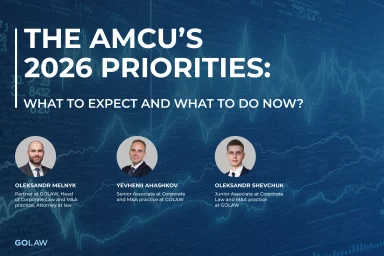What is the difference between lobbying and GR?
After the Law on Lobbying came into force, lawyers who provide legal services to businesses related to interaction with the government started thinking about the need to change their approaches and reformat their work in the new environment. Let’s try to figure out whether this will be necessary.
What does GR do?
Today, many law firms and law offices have a GR (Government Relations) practice in their structure. The subject matter of the specialists in this department is determined independently by each manager (managing partner). There is a general understanding that running and developing a business requires not only a high level of professionalism and an impeccable business reputation. After all, the activity also involves constant interaction with the authorities, including regulatory and law enforcement agencies. And the task of GR is precisely to build effective communication to protect the interests of the entrepreneur.
Therefore, having studied the specifics of the company, lawyers develop a strategy for representing and protecting its interests in state and local government bodies during possible forms of contact (meetings, negotiations). To implement it, lawyers prepare and conduct seminars for owners, managers and employees so that everyone understands the general approaches and rules of conduct.
For medium and large businesses, it is important to analyze current trends in the development of legislation in the area of the company’s activity, as well as to participate in its formation and change within the framework of state regulatory policy.
The lawyers also often support the procedures for obtaining permits and licenses necessary for ongoing business activities.
A separate area is the resolution of conflict situations that may arise during scheduled and unscheduled inspections by regulatory authorities. When the situation goes too far, lawyers also defend against unfounded accusations in criminal proceedings.
These areas of focus today determine the content of the services offered by GR practices. The legislation under which consultations, representation, and defense are provided is determined by sectoral (for a particular company) regulations, as well as a number of legislative acts that establish the powers of state bodies in terms of instruments of influence on economic activity. These include the Laws of Ukraine “On Licensing of types of Economic Activities,” “On Basic Principles of State Supervision (Control) in the Field of Economic Activity,” “On the Principles of State Regulatory Policy in the Field of Economic Activity,” the Code of Ukraine on Administrative Offenses and the Code of Criminal Procedure, and other legislative acts.
Focus on rulemaking
The Law on Lobbying does not cover all these areas of interaction between business and government. If we simplify the definition of the term provided in Article 1, we can conclude that lobbying is limited to activities aimed at influencing the subject of lawmaking or lawmaking initiative in the commercial interests of the beneficiary. This is an activity in the beneficiary’s own interests or for remuneration (received directly or indirectly or with payment of actual expenses necessary for lobbying).
It is also worth considering the list of activities that fall outside the scope of the Law.
Lobbying will not include public activities, activities of entities in the field of media and electronic communications, independent professional activities of lawyers, personal representation, anti-corruption expertise of regulations and projects, the work of the lawmaking entities themselves, activities of non-profit professional organizations that, in accordance with the law, ensure the implementation of the tasks of self-government of the bar, notaries, insolvency officers, private executors, auditors, as well as some other types of activities.
Based on the above, we can identify several essential features of lobbying.
First, the scope of interaction is clearly limited to lawmaking. After all, the object of influence (lobbying) is related to this area: it is either the subject of lawmaking itself or the subject of such an initiative. The subject of lobbying is also clearly defined: it is only a legal act whose development, amendment, or repeal is of interest to business.
To better understand the subject, we should take into account the Law on Lawmaking. It also defines both the subject of lawmaking and the subject of lawmaking initiative. Therefore, we can say that they include the President and officials of his office, MPs, members of the Cabinet of Ministers, ministers and heads of other government agencies, members of local councils, and heads of structural units of local state administrations, as well as all officials who, pursuant to the Constitution, laws, and bylaws, have the right to submit drafts of legal acts for consideration for adoption (publication).
Second, the business always has a commercial interest (beneficiary). If there is no such interest, there is no lobbying. A commercial interest is money or property, personal advantages, benefits, or other benefits of a tangible or intangible nature that the beneficiary will receive or may receive in the course of business activities after the adoption, amendment, or repeal of an act or, rather, as a result of influencing the object (official).
Thirdly, a lobbying entity is an individual or legal entity that either has its own commercial interest or exerts influence in commercial interests for a fee. Therefore, formally, the free work of intermediaries between business and government officials will not be considered lobbying. And here, obviously, lies a certain corruption factor that will have to be somehow overcome in the future during the practical implementation of the law. After all, this loophole actually creates a shadow market for lobbyists.
Practical implementation
Equally important are the methods (forms) of lobbying defined in Article 7 of the Law. Unfortunately, this list is not exhaustive, which will surely create ambiguities and disputes in specific situations that will traditionally have to be resolved by the courts.
Lobbying methods include any methods of influence not prohibited by law, in particular:
- any direct or indirect communication with the lobbying object on issues related to the subject of lobbying;
- preparation and distribution of advertisements, proposals, program and position papers, analytical materials, and results of sociological and other studies on issues related to the subject of lobbying, including through the media or the Internet;
- participation in events on issues related to the subject of lobbying in order to influence (attempt to influence) the object of lobbying;
- inviting the object of lobbying to participate in meetings, conferences, events, etc;
- organizing public events, information campaigns, and other events not prohibited by law related to the subject of lobbying.
That is, if you organize a legal conference and invite an MP to attend, this is a method of lobbying; when you have a small talk with him or her over a cup of coffee, this is also a method of lobbying; if you write and publish an article in which criticize (or support) a particular project – all of this has signs of lobbying.
Therefore, you will have to be very careful not to get caught by the National Agency on Corruption Prevention. After all, it is this agency that monitors compliance with lobbying legislation on the basis of information received from lobbying entities, individuals, and legal entities, as well as from the media and other open sources. At the same time, any person who detects violations of lobbying legislation by a lobbying entity may report this to the NACP.
In case of violation of other requirements of the lobbying legislation, including lobbying by a person who has not acquired the status of a lobbying entity and whose information is not entered in the Transparency Register, the NACP takes measures to bring the perpetrators to justice (Article 18 of the Law).
Interestingly, the Law introduces the Rules of Ethical Conduct for Lobbying Entities. They are currently being drafted by the NACP, and the document itself is to be approved by the Cabinet of Ministers of Ukraine. Obviously, these Rules will be used as an additional ground for punishing lobbyists. However, it is worrying that the Law does not contain any norms on their legal meaning and application procedure, except for the obligation to comply (in this aspect, the Rules of Professional Conduct of Advocates could serve as a model of proper regulation and application practice).
It is clear that in all cases, it will be necessary to prove the elements of the offense, in particular, the existence of “issues related to the subject of lobbying,” but we are well aware of the approach of government and law enforcement agencies in such situations.
Inference
Summarizing the above, it can be argued that the Law on Lobbying, unlike all other laws, regulates the permitted ways of business influence on state representatives, which form the rules of the game for the business itself in the form of regulatory acts.
We can say for sure that activities related to state regulatory policy in the field of economic activity, which is one of the areas of work of the GR practice today, will definitely be considered lobbying (unless they are carried out exclusively through official correspondence).
At the same time, advocacy, as understood by the Law on the Bar and Practice of Law, i.e., the provision of defense, representation, and other types of legal assistance to clients, is completely outside the scope of the Law on Lobbying. Therefore, lobbying services cannot be covered by the attorney-client privilege. In this part, law firms will have to create separate entities, enter data about them in the Transparency Register, and act in accordance with the established rules. Lobbying overlaps with GR to some extent, but it does not exclude the continuation of these practices in law firms, except for rulemaking.
If you need legal advice, please fill out the form below to request it.

Dr. Valentyn Gvozdiy
Managing Partner, Attorney at law, PhD
- Contacts
- 31/33 Kniaziv Ostrozkykh St, Zorianyi Business Center, Kyiv, Ukraine, 01010
- v.gvozdiy@golaw.ua
- +38 044 581 1220
- Recognitions
- Lexology Index: Corporate Tax 2025
- ITR World Tax 2025
- Lexology Index: Client Choice 2025
- The Legal 500 EMEA 2025
- 50 Leading Law Firms Ukraine 2026
Get in touch
To get a consultation, please fill out the form below or call us right away:Sign up to be aware
New achievements are inspired by information. GO further, don’t miss out GOLAW news and legal alerts
Our expertise
-
- Energy and Natural Resources
- Antitrust and Competition
- Banking and Finance
- Compliance, Corporate Governance and Risk Management
- Corporate and M&A
- Criminal and White Collar Defence
- Defense in Anti-corruption procedures and regulations
- Labor and Employment
- Natural Resources and Environment
- Government Relations (GR)
- Insolvency and Corporate Recovery
- Intellectual property
- International trade
- Legal support of business and private Сlients in Germany
- Litigation and dispute resolution
- Private clients
- Real Estate and Construction
- Restructuring, Claims and Recoveries
- Martial Law
- Tax and Customs
- Digital Economy Practice
-
- Agribusiness
- Aviation
- Chemical industry
- Engineering, Construction and Building Materials
- Environment and Natural Resources
- Financial institutions
- IT and AI
- Industry and manufacturing
- Healthcare industries, Life sciences and Pharmaceuticals
- Media, Entertainment, Sports and Gambling
- Retail, FMCG and E-Commerce
- Transport and Logistics
We use cookies to improve performance of our website and your user experience.
Cookies policy
Cookies settings







